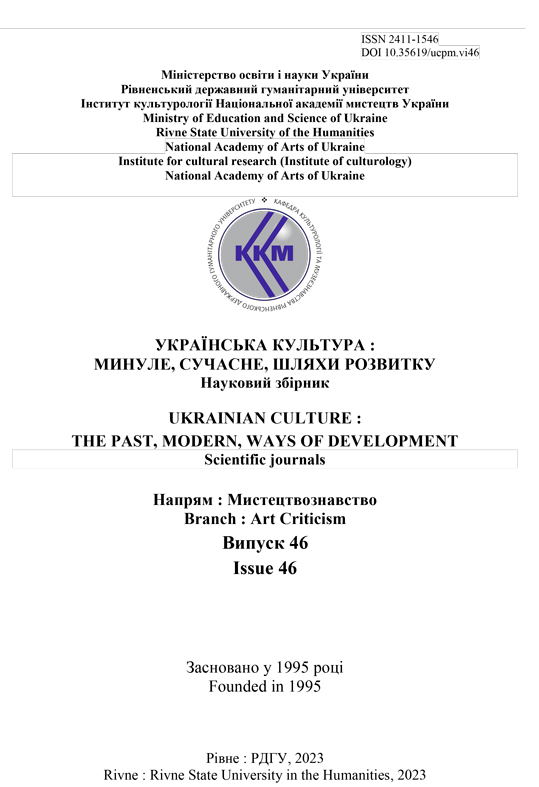POETICS OF CHILDREN'S OPERA IN THE CONTEXT OF NATIONAL «MODELS» OF EUROPEAN CULTURE OF THE XIX-XX CENTURIES
DOI:
https://doi.org/10.35619/ucpmk.v46i.674Keywords:
children's opera, theme of childhood, genre, style, romanticism, Biedermeier, modern.Abstract
The purpose of the work is to reveal the typological qualities of children's opera (children's musical theater) in the direction of its embodiment of national fairytale-archetypal qualities, as well as spiritual and stylistic pursuits of European culture of the XIX-XX centuries. Methodological base. The following approaches were essential for this work: interdisciplinary, historical-cultural, as well as intonation-stylistic. The scientific novelty of the work is determined by its analytical perspective, which reveals the peculiarities of the life of children's opera (children's musical theater) in line with the national and spiritual and stylistic guidelines of European culture of the XIX-XX centuries. Conclusions. Genre and style generalizations of children's operas by the named authors demonstrate a variety of approaches to the interpretation of the theme of childhood, summarized above as «constructivist» and «metaphysical». Children's operas by M. Lysenko and K. Stetsenko are focused on the first principle – «teaching childhood», implemented through involvement in Ukrainian folklore and spiritual and archetypal instructions of the national culture. The demonstrative principle of Ege's opera «Hansel and Gretel» is also indicated. Humperdinka, however, is embodied through freely interpreted fairy folklore (as interpreted by the Brothers Grimm) and the spiritual and ethical attitudes of German Protestant culture. Another approach – «metaphysical» – is indicative of the works of the authors of the beginning of the 20 th century. – V. Rebikov and M. Ravel. For the first of them, the appeal to a similar solution to the theme in the opera «The Christmas Tree» is due to the Orthodox roots of Slavic culture, as well as an appeal to the spiritual and ethical qualities of H.H. Andersen's work. The ethical and instructive quality of this experimental «musical-psychographic drama» is addressed not so much to children as to adults. At the same time, gentleness and patience as ideal qualities of the main character (a lonely orphan girl) are one of the aspects of the metaphysical thesis «learning from children». Another approach is demonstrated by the concept of «lyrical fantasy» «Child and Enchantment» by M. Ravel, in which, through children's themes and genre-style symbiosis, the spiritual qualities of the author himself, the features of his style, as well as the search for French modernism of the beginning of the 20 th century are artistically embodied.




